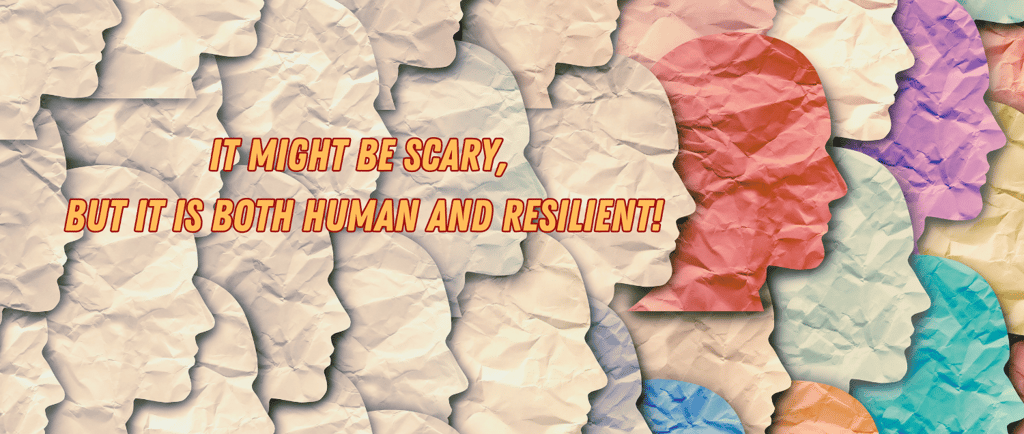The Process of Change: Beyond the Surface of Social Media and Materialism
Change is about building relationships and trust, not likes and follows...
PERSPECTIVE
Mark Boatwright-Frost
12/5/20245 min read


Understanding Real Change
Real, lasting change transcends the temporary and superficial alterations often promoted by social media and materialism. It encompasses deep psychological and emotional dimensions, highlighting the importance of connection, commonalities, and relationships within a community. To understand what constitutes genuine transformation, one must recognize that it often stems from a foundation of trust and support. Sustainable change is less about the external symbols of success and more about the transformative power of meaningful interactions.
Engaging in authentic relationships fosters an environment where individuals feel valued, understood, and supported. As such, these connections serve as a catalyst for profound personal and communal change. The social media culture often glorifies quick, visible accomplishments—likes, followers, and material possessions—encouraging a cycle of constant comparison and dissatisfaction. However, these achievements do not necessarily translate to fulfillment or a sense of belonging. In contrast, real change challenges individuals to engage with one another, to listen and respond to shared experiences, and to cultivate a sense of community that champions collaboration over competition.
The psychological implications of establishing strong relationships are significant, as they create pathways for comprehensive change. Emotional intelligence, empathy, and the ability to communicate effectively are vital skills that arise in an environment where authentic connections thrive. By fostering these qualities, individuals can navigate through personal challenges, support each other's growth, and build a collective identity that promotes lasting change.
Moreover, when communities focus on consensus-driven actions, they foster a sense of belonging that empowers individuals. This collective commitment encourages active participation in meaningful endeavors, thus reinforcing the idea that real change is grounded in shared goals and collaborative efforts. Ultimately, transforming how we perceive change requires a shift in focus—from the fleeting rewards of materialism and social media validation to the enduring satisfaction that comes from strong, lasting relationships.
The Dangers of Superficiality
In contemporary society, social media platforms have transformed the way individuals interact, often prioritizing metrics such as likes, follows, and shares over meaningful connections. This shift toward superficiality has significant repercussions for societal relationships. The quest for online validation has led to a culture in which the quantity of interactions often takes precedence over quality, creating divisions rather than fostering connections. Users frequently find themselves in a cycle of 'farming for clicks,' where the primary goal is to garner attention rather than engage in substantial discourse.
This mentality promotes a competitive atmosphere in which individuals compare their online presence with that of others. Social media feeds are inundated with curated images and status updates that reflect an idealized version of life, often leading to feelings of inadequacy among users. Consequently, individuals may prioritize their image and engagement metrics rather than cultivating authentic relationships. The desire for approval through social media can inadvertently create barriers to genuine interaction, as users may be more focused on how their posts will be received than on the connections being made behind the screens.
Such a dynamic not only hampers the development of meaningful relationships but also reinforces a culture of competition. Instead of cooperating to build communal bonds, individuals may feel compelled to compete for attention, leading to a breakdown of trust and collaboration. The superficial nature of these interactions can result in loneliness, as people navigate a space that offers the illusion of connection while often leaving them feeling isolated. It becomes imperative to acknowledge these dangers associated with superficiality in our digital interactions, as they can significantly hinder our ability to forge authentic, lasting connections in an increasingly interconnected world.
The Importance of Community and Consensus
In the pursuit of social change, community and consensus emerge as foundational pillars that significantly enhance the potential for meaningful outcomes. When individuals come together, driven by a shared goal, the collective strength of the community fosters collaborative environments where diverse perspectives can converge. This approach not only cultivates trust but also promotes a sense of belonging, enabling individuals to feel valued and engaged in the change process.
Numerous examples exist illustrating how community-driven initiatives have resulted in transformative impacts. One notable case is the community garden movement, which seeks to address food insecurity and promote environmental sustainability. By uniting residents from various backgrounds to cultivate shared plots of land, these initiatives not only provide fresh produce but also foster a sense of shared responsibility and nurture social ties among participants. Such gardens exemplify how collective action transcends individual pursuits, demonstrating that collaboration can lead to substantial benefits for families and neighborhoods alike.
Additionally, grassroots campaigns such as those focused on local environmental conservation provide compelling evidence of how community consensus can drive significant change. When citizens band together to advocate for green spaces and sustainable practices, they not only enhance their surroundings but also become empowered by their collective voice and actions. Through regular meetings and inclusive discussions, stakeholders can identify common challenges while leveraging their diverse skills and resources to create targeted solutions. This collaborative approach ultimately strengthens community bonds and paves the way for sustainable transformation.
In this context, it is evident that fostering a sense of community is essential for achieving balanced change. Consensus-building and trust are vital for uniting efforts, ensuring that initiatives are not just reactions to social media trends or materialistic distractions, but rather authentic movements aimed at lasting impact. Working together through shared efforts lays the groundwork for a more resilient society capable of addressing complex issues and driving essential change.
Filling the Void: Pathways to Authentic Connection
In a digital age where materialism and social media dominate, many individuals experience emotional voids that stem from shallow interactions and competitive mindsets. To combat these feelings, fostering authentic connections is essential. Engaging in meaningful relationships provides a sense of belonging and emotional support that material possessions and online validation cannot offer.
One effective strategy for cultivating genuine relationships is active listening. When individuals truly listen to one another, they create a space for open communication and trust. This practice not only enhances understanding but also aligns individuals with shared values and interests, facilitating deeper connections. Moreover, expressing vulnerability can strengthen relationships, as it encourages others to reciprocate and share their own experiences, thus forming a strong bond built on empathy.
Community service is another pathway to authentic connection. Volunteer work fosters a sense of purpose and belonging while allowing individuals to connect with others who share similar goals. Participating in community initiatives also provides opportunities to engage in collaborative efforts, which reinforces the importance of teamwork and shared responsibility. Through these shared activities, individuals can form lasting relationships based on common interests and a mutual desire to make a positive impact.
Additionally, engaging in social activities that prioritize connection over competition can shift the focus away from consumerism. Organizing gatherings, book clubs, or sports teams shifts interaction from superficial engagements to meaningful experiences. Such environments encourage cooperation, where individuals can support one another and focus on shared achievements rather than individual successes.
As individuals reflect on these pathways to authentic connection, they may consider how implementing these strategies can fill their emotional voids. True fulfillment arises from cultivating genuine connections, allowing individuals to move beyond material distractions and social comparisons, ultimately leading to a richer, more satisfying life.
Some thoughts on a human future... ~Mark Boatwright-Frost
The Resilient Community Movement
In today's ever-changing world, the importance of fostering resilience within neighborhoods and communities cannot be overstated. By facilitating connections among residents, we empower individuals to share their stories and experiences, creating a strong support network. This collaborative spirit not only enhances the well-being of community members but also amplifies their voices, ensuring that their unique human needs are recognized and addressed.
Contact and Connect
info@reseco.org
© 2024. All rights reserved.
